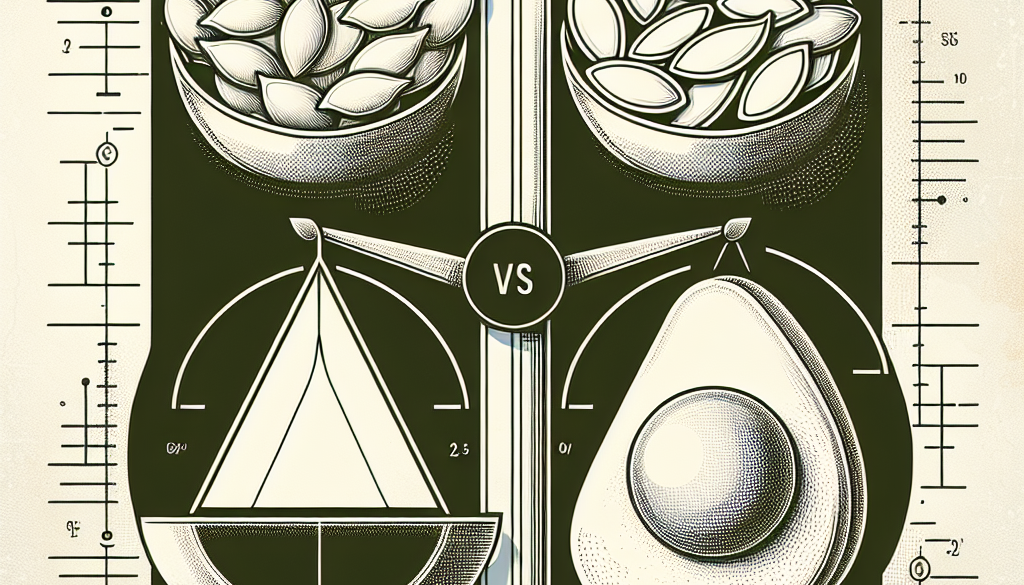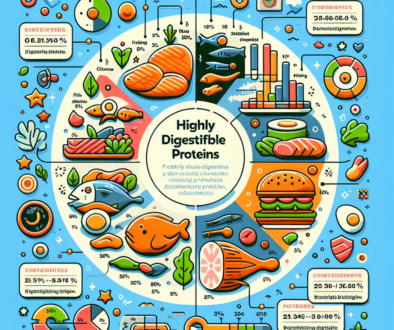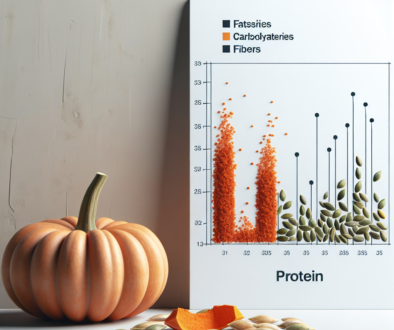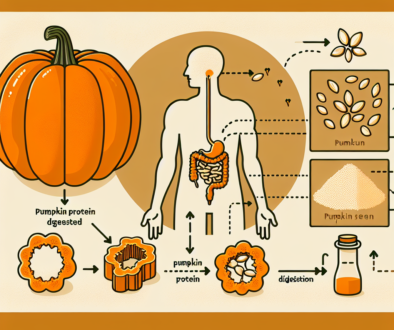Do Pumpkin Seeds Have More Protein Than Eggs?
-
Table of Contents
- Pumpkin Seeds vs. Eggs: A Protein Comparison
- Understanding Protein in Our Diet
- The Protein Content of Pumpkin Seeds
- The Protein Content of Eggs
- Comparing Protein Quality: Pumpkin Seeds vs. Eggs
- Nutritional Benefits Beyond Protein
- Case Studies and Research
- Practical Considerations for Dietary Choices
- Conclusion: Balancing Protein Sources for Optimal Health
- Explore ETprotein’s Plant-Based Protein Products
Pumpkin Seeds vs. Eggs: A Protein Comparison
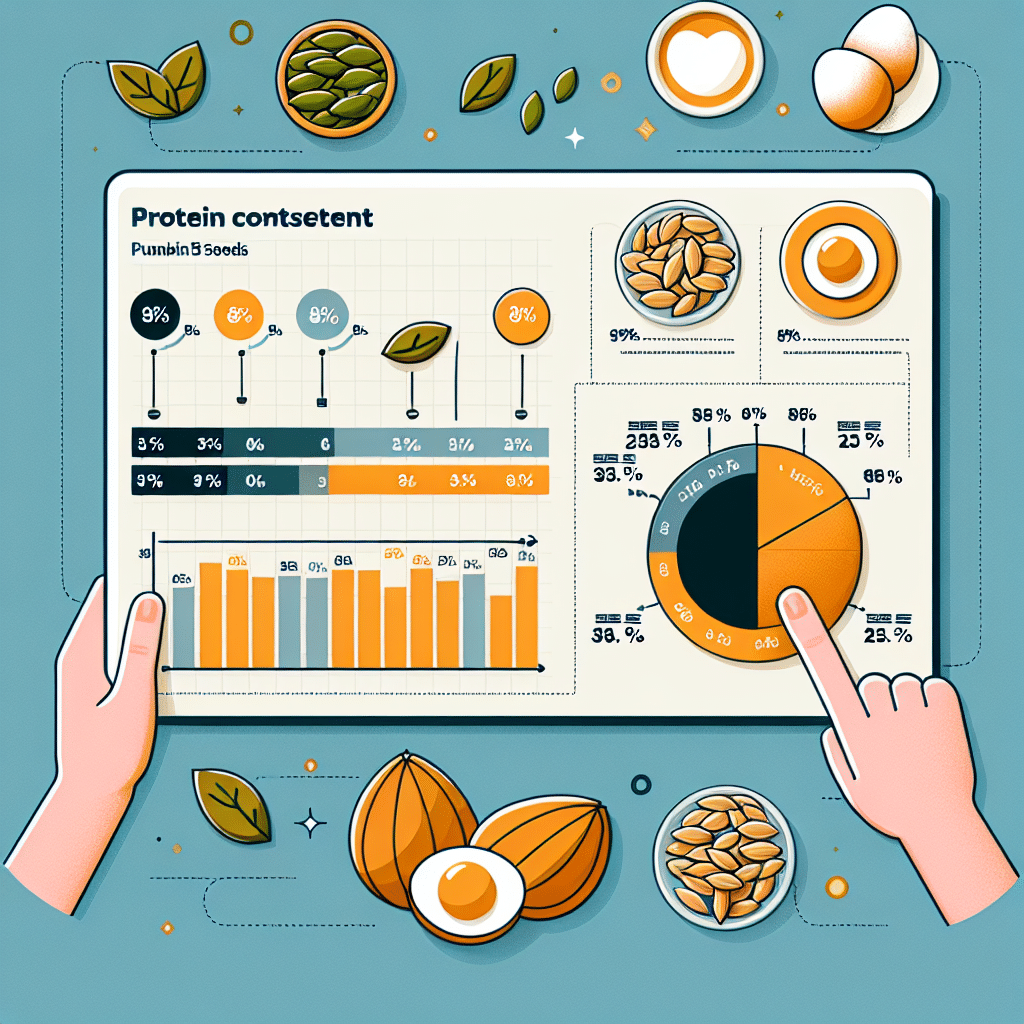
When it comes to protein sources, eggs have long been a staple in many diets, renowned for their high-quality protein content. However, with the rise of plant-based diets and the search for alternative protein sources, pumpkin seeds have emerged as a nutrient-dense option. This article delves into the protein content of pumpkin seeds compared to eggs, exploring which one packs a more substantial protein punch.
Understanding Protein in Our Diet
Protein is a crucial macronutrient necessary for building and repairing tissues, making enzymes and hormones, and supporting overall health. Both animal and plant-based foods can provide protein, but they differ in amino acid profiles and nutritional value.
The Protein Content of Pumpkin Seeds
Pumpkin seeds, also known as pepitas, are the edible seeds of a pumpkin or certain other cultivars of squash. They are not only rich in protein but also contain a variety of nutrients such as magnesium, zinc, and healthy fats. A 28-gram serving of shelled, roasted pumpkin seeds contains approximately 7 grams of protein.
- Rich in antioxidants
- High in dietary fiber
- Contains beneficial fats
- Provides magnesium, iron, zinc, and copper
The Protein Content of Eggs
Eggs are considered a complete protein source, meaning they provide all nine essential amino acids that the body cannot produce on its own. A single large egg offers about 6 grams of protein, which is highly bioavailable and easily absorbed by the body.
- Contains vitamins A, B12, D, E, and K
- Includes essential fatty acids
- Source of choline, important for brain health
Comparing Protein Quality: Pumpkin Seeds vs. Eggs
While both pumpkin seeds and eggs offer protein, the quality and completeness of this protein differ. Eggs contain all essential amino acids in the right proportions for our bodies to use effectively, making them a high-quality protein source. On the other hand, pumpkin seeds, like most plant proteins, have a less complete amino acid profile.
However, when combined with other plant-based proteins that complement their amino acid profile, pumpkin seeds can contribute to a complete protein intake. For example, consuming grains like rice or wheat with pumpkin seeds can provide a full range of amino acids.
Nutritional Benefits Beyond Protein
While protein content is an important factor to consider, it’s not the only nutritional benefit of these foods. Pumpkin seeds offer a range of vitamins and minerals, along with healthy fats and fiber. Eggs, too, are nutrient-dense, providing a variety of vitamins and minerals that are essential for health.
Case Studies and Research
Several studies have compared the health benefits of plant-based proteins with those of animal-based proteins. Research suggests that incorporating more plant-based proteins like pumpkin seeds into the diet can have positive effects on heart health, weight management, and overall mortality.
Conversely, eggs have been studied for their role in cholesterol levels and heart health, with mixed results. While they are high in cholesterol, they also contain nutrients that can mitigate the potential negative effects of cholesterol on the body.
Practical Considerations for Dietary Choices
When choosing between pumpkin seeds and eggs for protein, consider dietary restrictions, ethical beliefs, and nutritional needs. For those following a plant-based diet, pumpkin seeds are an excellent protein choice. For individuals without dietary restrictions, eggs can provide a convenient and versatile protein source.
Conclusion: Balancing Protein Sources for Optimal Health
In conclusion, while eggs have a slightly lower protein content per serving compared to pumpkin seeds, they offer high-quality, complete protein. Pumpkin seeds provide a plant-based protein option that, when combined with other proteins, can meet dietary needs. Both are nutritious foods that can contribute to a balanced diet.
Ultimately, the choice between pumpkin seeds and eggs for protein intake may come down to personal preference, dietary restrictions, and nutritional goals. Incorporating a variety of protein sources, both animal and plant-based, is key to a well-rounded and healthy diet.
Explore ETprotein’s Plant-Based Protein Products
If you’re looking to diversify your protein sources, consider ETprotein’s range of high-quality plant-based proteins. Their pumpkin seed protein is an excellent choice for those seeking a plant-based alternative to traditional animal proteins. With a commitment to non-GMO, allergen-free products, ETprotein ensures that you receive the best in taste and nutrition.
About ETprotein:
ETprotein, a reputable protein and L-(+)-Ergothioneine (EGT) Chinese factory manufacturer and supplier, is renowned for producing, stocking, exporting, and delivering the highest quality organic bulk vegan proteins and L-(+)-Ergothioneine. They include Organic rice protein, clear rice protein, pea protein, clear pea protein, watermelon seed protein, pumpkin seed protein, sunflower seed protein, mung bean protein, peanut protein, and L-(+)-Ergothioneine EGT Pharmaceutical grade, L-(+)-Ergothioneine EGT food grade, L-(+)-Ergothioneine EGT cosmetic grade, L-(+)-Ergothioneine EGT reference grade and L-(+)-Ergothioneine EGT standard. Their offerings, characterized by a neutral taste, non-GMO, allergen-free attributes, with L-(+)-Ergothioneine purity over 98%, 99%, cater to a diverse range of industries. They serve nutraceutical, pharmaceutical, cosmeceutical, veterinary, as well as food and beverage finished product distributors, traders, and manufacturers across Europe, USA, Canada, Australia, Thailand, Japan, Korea, Brazil, and Chile, among others.
ETprotein specialization includes exporting and delivering tailor-made protein powder and finished nutritional supplements. Their extensive product range covers sectors like Food and Beverage, Sports Nutrition, Weight Management, Dietary Supplements, Health and Wellness Products, and Infant Formula, ensuring comprehensive solutions to meet all your protein needs.
As a trusted company by leading global food and beverage brands and Fortune 500 companies, ETprotein reinforces China’s reputation in the global arena. For more information or to sample their products, please contact them and email sales(at)ETprotein.com today.

